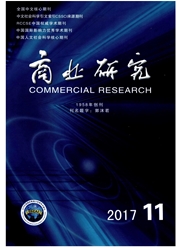

 中文摘要:
中文摘要:
在经济全球化和国际产业转移的背景下,作为新型国际分工的主要形式,国际垂直专业化分工对中国制造业产业升级的影响越来越明显。在进行理论分析的基础上,本文对中国制造业国际垂直专业化指数进行了测算,并运用1992—2008年中国制造业的时间序列数据,通过构建VAR模型和脉冲响应实证研究了参与国际垂直专业化分工对中国制造业产业升级的影响。研究结果表明中国制造业参与国际垂直专业化分工可以有效地促进制造业的产业升级,而且这种升级效应在初期效果显著;尽管这种效果随着时间的推移逐渐减弱,但升级效应的积极作用依然存在。
 英文摘要:
英文摘要:
In the background of economic globalization and international industrial transfer, as the main form of new in- ternational division of labor, the international vertical specialization division of labor has increasingly apparent impacts on China's manufacturing industrial upgrading. Based on theoretical analysis, this paper calculates the international vertical specialization index of China's manufacturing industry. By building VAR model and the impulse response, the paper also makes an empirical study on the impacts of the international vertical specialization division of labor on China's manufac- turing industrial upgrading, by use of time - series data of China's manufacturing industry from 1992 to 2008. The results show that China's manufacturing sector participation in international vertical specialization division of labor can effectively promote industrial upgrading in manufacturing, and this upgrading effect is significant at the beginning; although the effect is gradually weakened over time, but the positive role of the upgrading effect still remain.
 同期刊论文项目
同期刊论文项目
 同项目期刊论文
同项目期刊论文
 期刊信息
期刊信息
